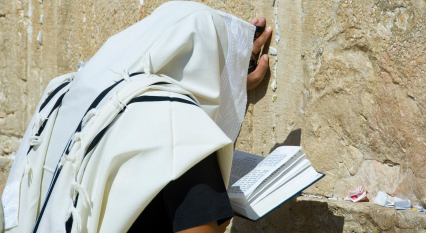The Secret of God’s Covenant
 In a Gentile or non-Jewish society, businessmen speak of contracts and agreements. However, the word covenant was used in ancient times and was more than just a binding agreement signed on a parchment or sealed with a wax impression from a signet ring.
In a Gentile or non-Jewish society, businessmen speak of contracts and agreements. However, the word covenant was used in ancient times and was more than just a binding agreement signed on a parchment or sealed with a wax impression from a signet ring.
To the ancient cultures, a covenant was sealed in blood. To the Hebrews, the biblical covenants are also connected to blood covenants. The first time the word covenant is used in the Torah is in Genesis 6:18 when God made a covenant with Noah to spare him and his family during the Flood. The second reference is with Abraham (Gen. 17:1-2). Originally named Abram (meaning “high father”), he lived in Ur of the Chaldeans, located six miles from the Euphrates River. He was the third of three sons born to Terah (Gen. 11:27).
Jewish tradition reveals that Abram’s family had served idol gods (Josh. 24:2, 14-15). But the almighty God appeared to Abram in a vision, instructing him to leave Ur and move to the land of Canaan. At age 75, Abram followed this vision. During Abram’s journey, God progressively appeared to Abram, revealing His divine purpose for Abram and his future children.
God told Abram he would become a “great nation” (Gen. 12:2); the “father of many nations” (Gen. 17:4); nations and kings would come out of him (Gen. 17:6); he would become a “mighty nation” and bless all nations (Gen. 18:18); and that “all nations of the earth shall be blessed” (Gen. 22:18).
With each step of obedience that Abram took, God increased the magnitude of His promises—from just a nation, to a great nation, to nations of kings, to a nation that would bless the entire world! The master key to release the fulfillment of these promises was obedience to the instructions demanded by God in His covenant.
The Secrets in the Covenant
The Hebrew word for covenant is b’rit, and it is used 280 times in the Old Testament. According to W. E. Vine’s Expository Dictionary of Old and New Testament Words, the word b’rit is frequently the object of the verb karath, “to divide or to cut in two.”
In Genesis 15, when God and Abraham “cut covenant,” Abraham provided a heifer, a female goat, a ram, a turtledove, and a young pigeon as offerings, dividing the larger animals into two halves (Gen. 15:9-10). This was an ancient ratification ceremony, which invoked oaths and binding agreements. God passed between the pieces, sealing the covenant in the sacrificial blood.
Genesis 15: 17-18 says: “And it came to pass, when the sun went down and it was dark, that behold, there appeared a smoking oven and a burning torch that passed between those pieces. On the same day the Lord made a covenant with Abram.”
From the arrangement of the dividing of the parts of the sacrifice came the expression that literally denoted “to cut covenant” (similar idioms are found in Greek and Latin). The very Hebrew word for covenant, b’rit, carries the implication of an agreement made with blood since the cutting symbolism involves a cutting and dividing of an animal sacrifice. The division of the animals into two parts represented the agreement between the two parties.














































